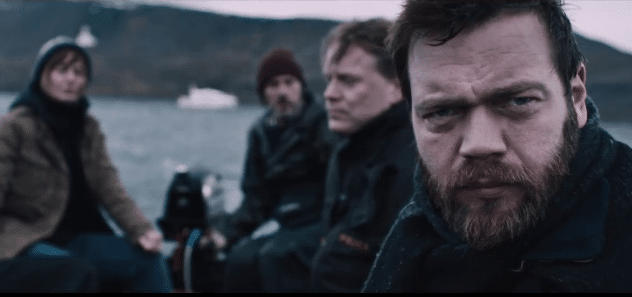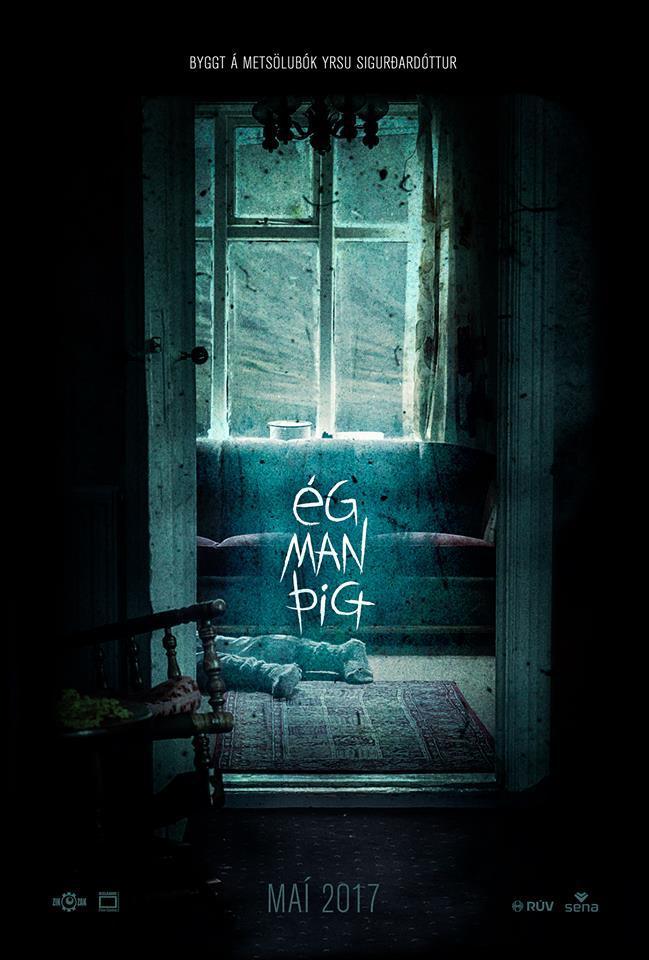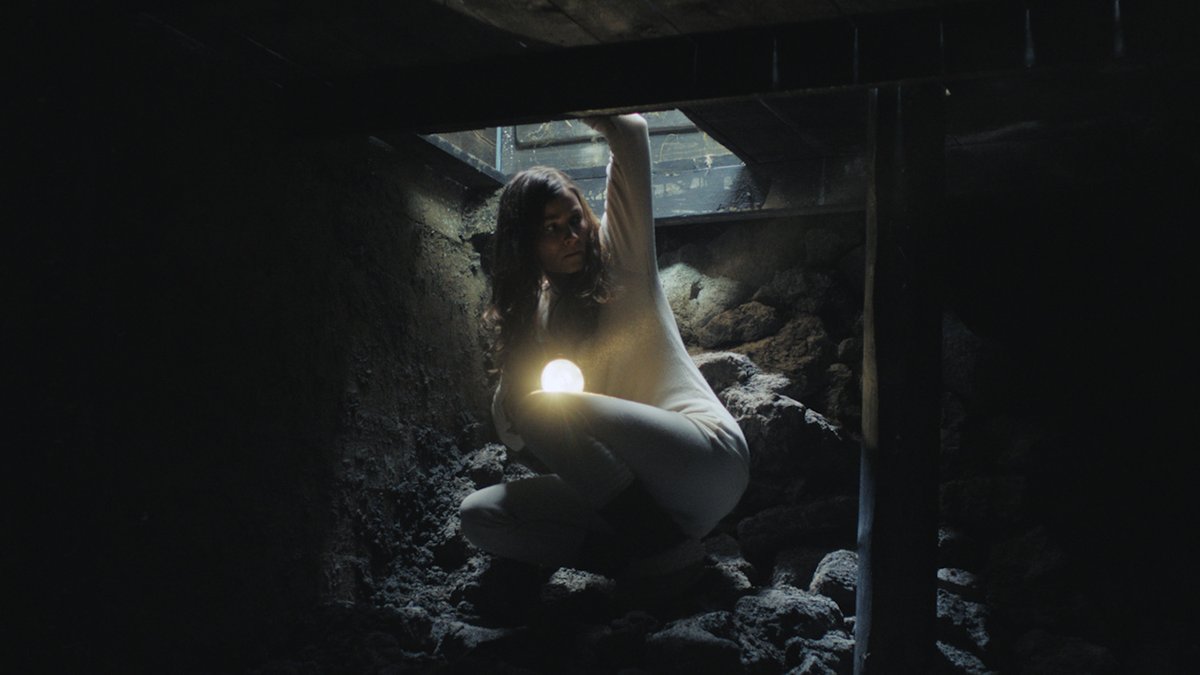 Being a tiny nation, it’s perhaps unsurprising that Iceland hasn’t yet featured very prominently, in its own right, in cinema. Its stunning and evocative landscapes have been used a thousand times in films which simply seek a striking location, but it’s comparatively rare to see Icelandic people, language and stories making their own way to the screen – at least for audiences outside of the country. For this reason alone, it’s welcome to see I Remember You (Ég man þig) – an Icelandic thriller which unites the noir stylings of popular TV shows like The Killing and The Bridge with something altogether more supernatural, more intangible. To achieve this – which it does, largely effectively – it relays an extensive story via two seemingly separate narrative arcs.
Being a tiny nation, it’s perhaps unsurprising that Iceland hasn’t yet featured very prominently, in its own right, in cinema. Its stunning and evocative landscapes have been used a thousand times in films which simply seek a striking location, but it’s comparatively rare to see Icelandic people, language and stories making their own way to the screen – at least for audiences outside of the country. For this reason alone, it’s welcome to see I Remember You (Ég man þig) – an Icelandic thriller which unites the noir stylings of popular TV shows like The Killing and The Bridge with something altogether more supernatural, more intangible. To achieve this – which it does, largely effectively – it relays an extensive story via two seemingly separate narrative arcs.
We first encounter a doctor, Freyr, apparently a psychiatrist (Jóhannes Haukur Jóhannesson) but enrolled to attend a death scene out of sheer necessity, when an elderly woman commits suicide in a remote church. She’d clearly died in some distress, having trashed the church’s interior and carved numerous crosses into the walls before hanging herself. The mystery deepens; the crosses carved into the walls have also been carved into her flesh, by whom we do not know: it’s something which has apparently been taking place for years given the differing degrees of scarring. Alongside detective Dagný (Sara Dögg Ásgeirsdóttir) Freyr becomes embroiled in trying to understand the reason for this death. Examinations of her background reveal that a number of people from her childhood have also died in strange circumstances – in fact, only two of the children from an ominously defaced group photograph are still alive, whilst another boy disappeared decades previously, never to be seen again. This would all be troubling enough, but when the elderly survivors seem to know something about Freyr’s son Benny – himself long missing, presumed dead – then Freyr has to follow the mystery to its origins.
Elsewhere, husband and wife Garðar and Katrín (Thor Kristjansson and Anna Gunndís Guðmundsdóttir) arrive in a weathered corner of the country with the goal of renovating a dilapidated shack in what was once a whaling village, long since abandoned. Katrín’s friend Líf has come along to help out, and on the surface, they seem a happy trio who aren’t afraid of the hard work ahead; there’s money to be made from the tourism which summer will bring, Katrín asserts. However, the ulterior motive behind all of this also pertains to a lost child. Katrín recently gave birth to a stillborn son, and the resulting pressure on the marriage caused a rift which is only just healing. Things are not as promising as they seem, however, and the cracks are soon to show, but Katrín seems to be prone to seeing and hearing things which seem to be supernatural in origin. The more she seems affected, the more issues between her and Garðar come to the fore; is she seeing the ghost of a little boy in the property because of her own trauma and her own situation? Or is there something else at play?
 How these two stories will intertwine is kept quiet for a large share of the film, with each story generating its own interest (and several low-key scares); course, you can probably gather that they will, eventually, overlap, and to give credit to writer/director Óskar Thór Axelsson, it’s quite hard to predict the process. That said, it feels like a long road to get to this point: the film runs at 105 minutes, which in today’s climate is not that long at all, but given the deliberation and pace of I Remember You, it feels somewhat longer. If you have patience for these kinds of slow-burn thrillers, then I would say there’s plenty there to reward it, but if you prefer your films more tightly-wrought then you may also feel that this film meanders in places.
How these two stories will intertwine is kept quiet for a large share of the film, with each story generating its own interest (and several low-key scares); course, you can probably gather that they will, eventually, overlap, and to give credit to writer/director Óskar Thór Axelsson, it’s quite hard to predict the process. That said, it feels like a long road to get to this point: the film runs at 105 minutes, which in today’s climate is not that long at all, but given the deliberation and pace of I Remember You, it feels somewhat longer. If you have patience for these kinds of slow-burn thrillers, then I would say there’s plenty there to reward it, but if you prefer your films more tightly-wrought then you may also feel that this film meanders in places.
Still, what a place to meander: part of the joy (if that’s the right term) of so much of this scandi noir comes simply from looking at the Scandinavian locations where these various shades of hell are unfolding. Like its neighbours, on one hand Iceland is neat, orderly and picturesque, and on the other it’s stark, barren and oddly colourless: these places look like nowhere else on earth. In fact, it’s a wonder more specifically supernatural cinema isn’t coming from Scandinavia, as the whole ethos of order being overshadowed by something sublime and terrifying is right there in the landscapes and the towns in equal part. I Remember You also has decent performances throughout, which underpins the unsettling horror at its core: lost, dead children, and the impact this has on their surviving relatives, especially parents. Still, this has been done elsewhere in recent years: the stark locations notwithstanding, I Remember You is thematically quite similar to The Orphanage, with a similar balance of mystery and supernatural phenomena (mercifully brought to the screen with a minimum amount of jump scares, though a few black-eyed child ghosts, which seem irresistible to filmmakers everywhere). The problem is, once you spot this similarity, many of the mysteries may lose a little something, but this is to be expected when there are comparatively so few modern ghost stories which rely on this kind of mystery-solving.
All in all, however, I Remember You is a well-shot film which shows us that ghosts inhabit the bleakest corners. It lingers over its exposition in ways which may challenge the patience of some viewers, but those who enjoy things to move a little slower and quieter will find plenty here. Not an instant classic perhaps, but an aesthetically-pleasing slow burn chiller nonetheless.
